10 Top Plants to Grow Indoors
http://decor-ideas.org 08/14/2014 19:13 Decor Ideas
Looking for a single ingredient that has the ability to make just about any room look better? It’s a plant. The humble houseplant is well and truly back on trend, and for good reason. A splash of healthy greenery instantly makes a room feel fresh and welcoming. Indoor plants also help purify the air, creating a healthier home. If you feel like one of your rooms is lacking a little something, try adding one of our favorite indoor plants.
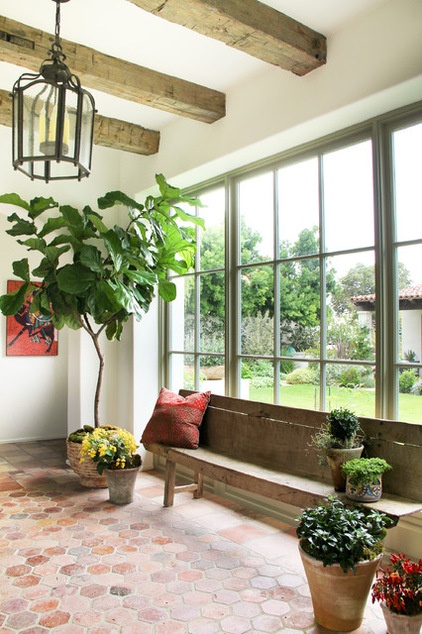
1. Fiddle Leaf Fig
Ask people who own a fiddle leaf fig (Ficus lyrata) and chances are, they will tell you how much they adore it. Fiddle leaf fig mania has taken the interior design world by storm in recent years. Loved for their large, glossy, leathery leaves, they make great houseplants. They are fantastic as larger specimen plants — in a large container, they can easily grow to around 6½ feet tall.
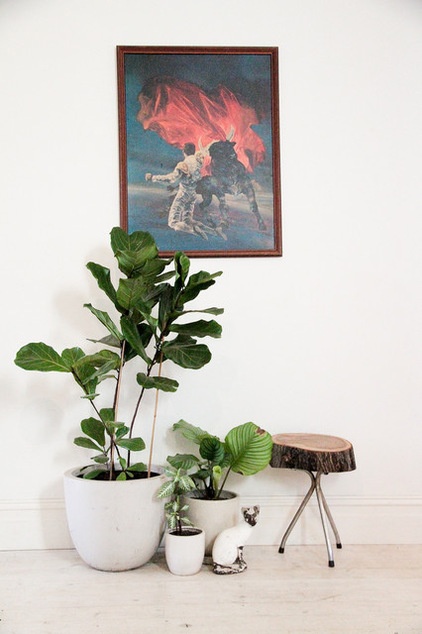
Great for: Adding a sculptural element and a wow factor to a room.
Light requirement: Place fiddle leaf fig near a window that gets bright filtered light. Keep it away from harsh direct sunlight to prevent leaf burn.
Water requirement: As it hails from a tropical climate, most experts advise keeping this ficus steadily moist and in a warm room if possible.
Tip: Do not allow it to sit in too much water, or it can suffer from root rot.
See more about growing fiddle leaf fig
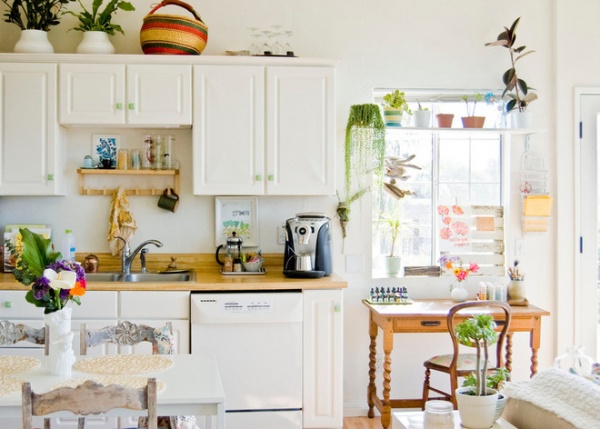
2. String of Pearls
With its long tendrils of trailing foliage covered in pea-like beads, the unique String of Pearls (Senecio rowleyanus), is an ideal creeping succulent to add to a quirky room. Pot it in well-draining, sandy soil and place it in a spot where its trailing foliage can hang down and cascade freely.

Great for: This odd-looking plant is a great conversation starter and can be easily shared with friends. Place a cutting or two of String of Pearls in a spare pot of soil, and it will easily take root.
Light requirement: This plant likes bright light, including direct sunlight.
Water requirement: Give it a drink every two weeks in summer and once a month in winter.
Tips: Keep it in a spot out of reach of drafts, open windows and air conditioning vents, as the cold air can cause leaf drop. String of Pearls is considered to be somewhat toxic, so keep it out of reach of children and pets.
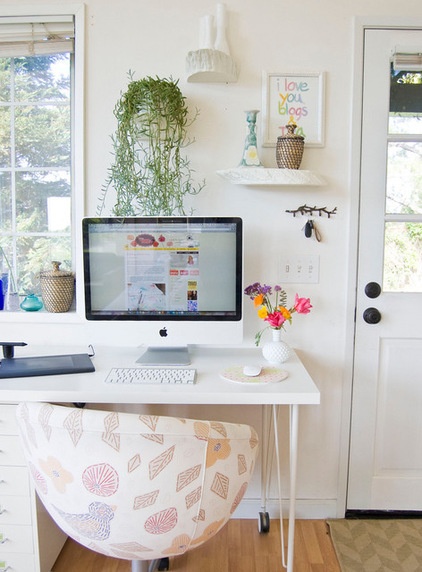
3. String of Bananas
The more slender cousin of String of Pearls, this trailing succulent produces long tendrils of tiny green banana-like leaves. String of Bananas (Senecio radicans) looks great planted on its own and pruned every so often to grow full and thick. It is also beautiful placed in a pot with other succulent varieties.
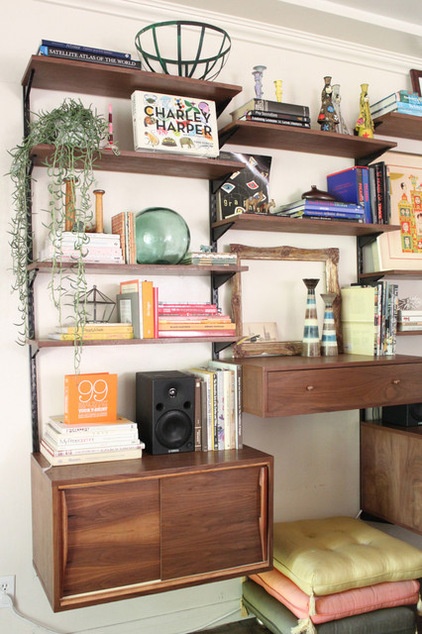
Great for: Hanging baskets or pots on windowsills where its beautiful foliage can trail.
Light requirement: Filtered sunlight.
Water requirement: Water it when the soil is dry to the touch. This drought-tolerant succulent likes porous soil with good drainage.
Caution: Keep String of Bananas away from children and pets who might be tempted to munch on it, as it is toxic.
See more about growing String of Pearls and String of Bananas
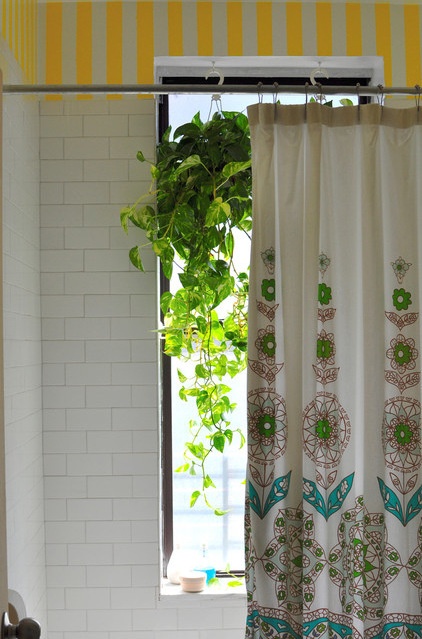
4. Pothos
Many of those who bemoan their black thumbs are delighted to find they have success with pothos, also known as Devil’s Ivy. This trailing lush, leafy vine will put up with infrequent watering and neglect.
In its native tropical jungle habitat, pothos can grow to about 39 feet in length, but in the home about 6 feet is common. It is one of the best plants for purifying indoor air.
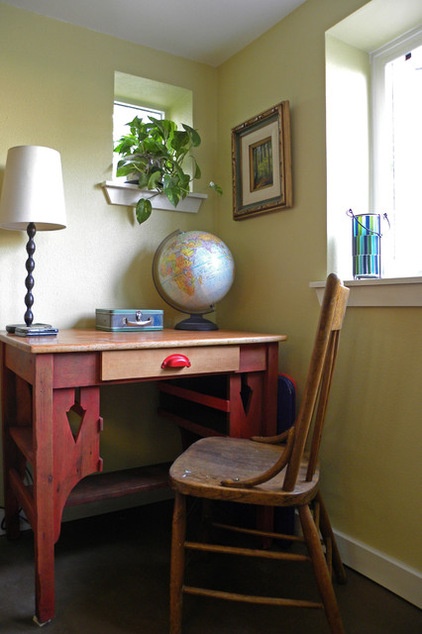
Great for: Those who don’t have an interest in gardening. It adds an inviting, homey touch.
Light requirement: Pothos can tolerate low-light areas.
Water requirement: Once a week will do nicely.
Tip: Prune for a fuller-looking, robust plant
Caution: Keep it out of reach of inquisitive babies, dogs and cats.
Pothos: The Perfect Houseplant for People Who Kill Houseplants

5. Zee Zee Plant
With its exotic looks, glossy green leaves and ability to tolerate neglect, the Zee Zee (or ZZ) plant (Zamioculcas zamiifolia) has been the pride of many a black thumb. A tropical perennial plant hailing from eastern Africa, it is hard to kill, slow growing and ideal as an office plant or a table centerpiece.
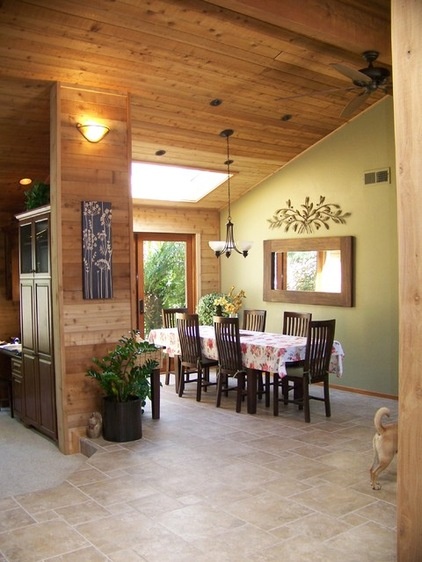
Good for: Homeowners looking for a very low-maintenance plant.
Light requirement: Bright, indirect light.
Water requirement: Give it a drink every two weeks.
Caution: Keep Zee Zee plant out of reach of pets and babies.
See more about growing Zee Zee plant

6. Madagascar Dragon Tree
With its low light and water needs and compact, structural shape, the hardy Madagascar dragon tree (Dracaena marginata) is hugely popular and great for adding impact and texture to a clean-lined room.

Great for: Contemporary and modern interiors.
Light requirement: A bright spot by a window is ideal.
Water requirement: About once a month, when the soil feels slightly dry, water it thoroughly until the water drips through the drainage holes. Discard water in the drainage saucer when possible — do not allow the plant to sit in water, otherwise the roots will rot.
Tips: To control the height and create a bushier plant, simply prune the top. You can grow a new plant from a cutting by dipping the cutting in rooting hormone and placing it in water; in a few weeks, two new stems will grow from the cut. It is then ready to be planted in soil.
See more about growing Madagascar dragon tree

7. Maidenhair Fern
While it is not the easiest houseplant for beginners to master, maidenhair fern (Adiantum) can be a wonderful addition to a home with its beautiful, softly textured foliage. It needs to be kept moist, so it isn’t for the forgetful houseplant gardener. But if you can remember, it can reward you with beautiful greenery for years to come.

Great for: Adding softness and texture to a traditional or retro room scheme with its delicate-looking foliage.
Light requirement: Place the fern in a brightly lit spot clear of drafts.
Water requirement: Keep the soil moist. A great idea to keep your indoor maidenhair fern from dehydrating is to plant it in a self-watering pot, which will allow the plant to take up as much water as it needs. You just need to remember to fill the reservoir.
Tips: Apply diluted liquid organic fertilizer regularly. Do not allow the soil to dry out even for a day or two.
Maidenhair Fern Brings Lacy Grace to a Room
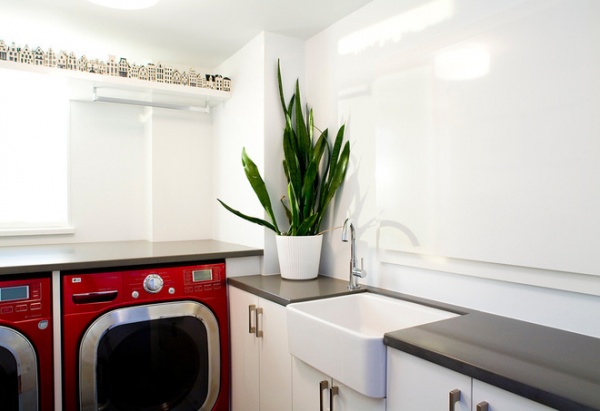
8. Mother-in-law’s Tongue (Snake Plant, Saint George’s Sword)
Named for its long, sharply shaped leaves, this structural plant with its strong, elongated leaves has shed its ’70s reputation. These days Mother-in-law’s Tongue (Sansevieria trifasciata) is enjoying a massive resurgence as an on-trend indoor and architectural plant. One of its best features is its incredible toughness.
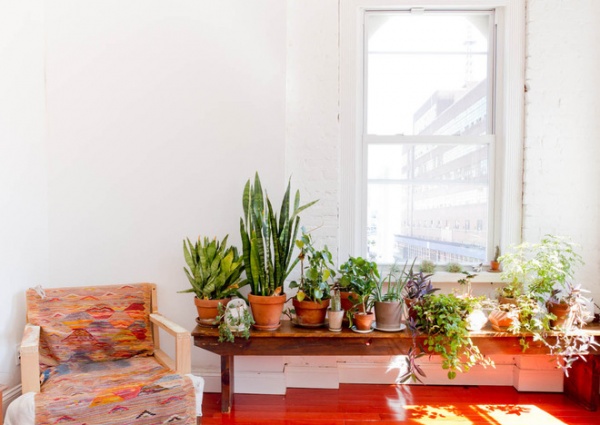
Good for: Adding structure to modern, contemporary, retro and eclectic interiors.
Light requirement: Although Mother-in-law’s Tongue is forgiving and can tolerate many conditions, it prefers full, bright light.
Water requirement: Water it only once a month. The only way to kill this plant is by overwatering.
Tips: This plant can be divided and shared easily with friends and looks great massed with other indoor plants.
See more about growing Mother-in-law’s Tongue

9. Umbrella Plant
Chances are you might recall this plant from the ’60s and ’70s. This hard-to-kill houseplant is now making a comeback, loved for its pretty foliage. Umbrella plant (Schefflera actinophylla) will flourish if it receives plenty of water and regular fertilizing.

Great for: Adding life and impact to a corner of a room, as the height of the plant is one of its great features.
Light requirement: Indirect sunlight is best.
Water requirement: This plant loves humid environments and moist soil, so water it weekly and spray frequently.
Tips: Umbrella plant loves warm, humid conditions. Fertilize it in its growing season with liquid fertilizer or slow-release pellets.
See more about growing Schefflera
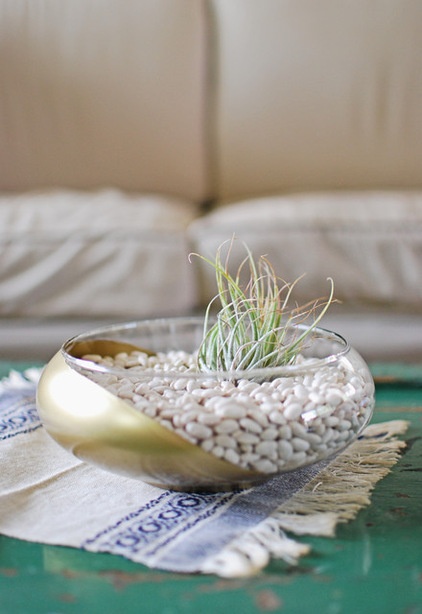
10. Air Plants
Air plants (Tillandsia) are super on trend at the moment, popping up in the hottest restaurants and bars and in displays at interior design expos. As they are called air plants, one of the most common myths is that they do not need to be given any water. Incorrectly, many people believe they can thrive on air or humidity alone and do not need any care.
Air plants grow differently than most other houseplants as they are covered in suction scales that capture moisture. They can obtain water only if it is on their leaves through dew, rain and fog. As houseplants, they can thrive when misted regularly.
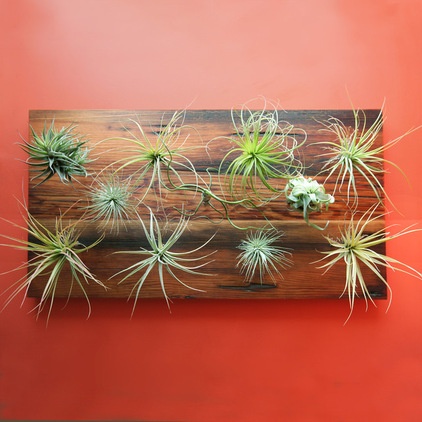
Good for: Adding interest to walls or being placed in glass globes hanging from the ceiling.
Light requirement: Bright, filtered light is ideal. Keep air plants that are placed in glass globes away from direct sunlight.
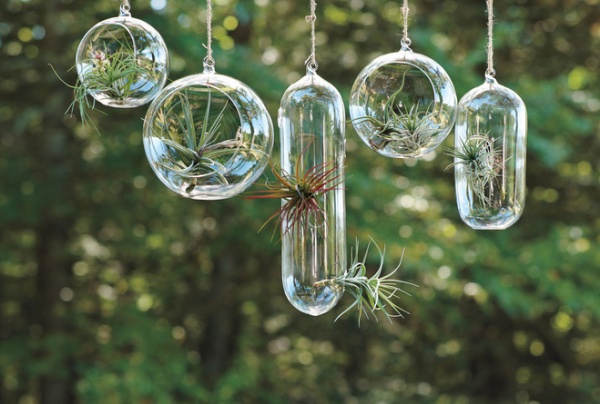
Water requirement: If you are growing an air plant indoors and the air is dry, mist it two times a week with a spray bottle and submerge the whole plant in a container of water for three hours every one to two weeks. If the air plant is in a glass globe, mist it with water with just one spray for tiny globes and two or three for larger globes. Overmisting can kill the plant.
Tip: After submerging your plant to wet it thoroughly, turn it upside down and gently shake it to avoid the collection of water near the base, which can be detrimental to your plant’s health.
See more on air plants
More: Get other ideas for decorating with plants in the Houseplants section
Related Articles Recommended












